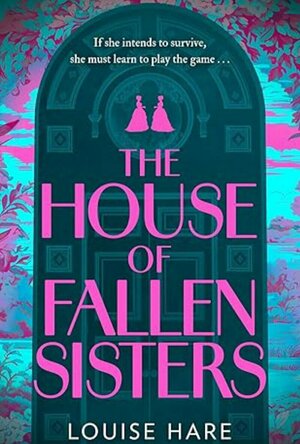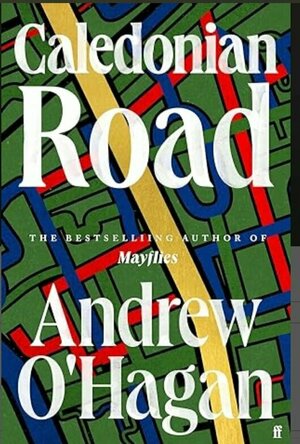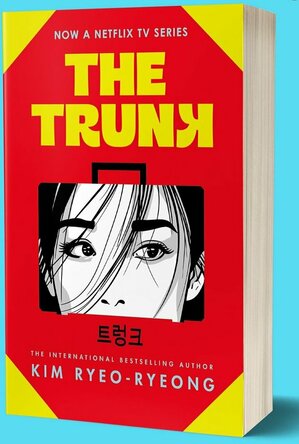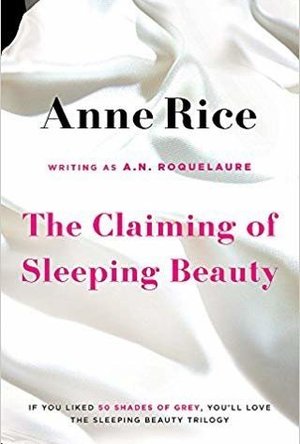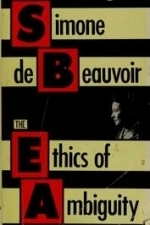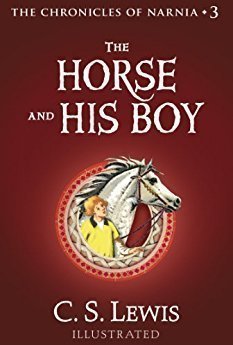Search
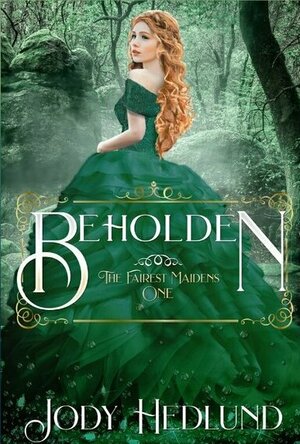
Beholden (The Fairest Maiden #1)
Book
In a land where being the fairest maiden is a curse . . . A beautiful noblewoman with a terrible...
Teens Young adult Medevial era Knights Princes Queen
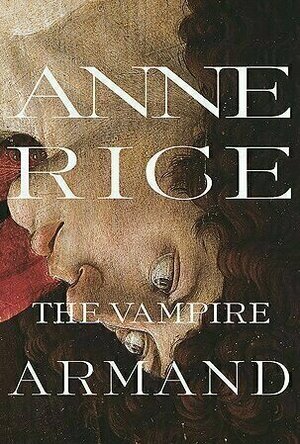
The Vampire Armand (The Vampire Chronicles, #6)
Book
In the latest installment of The Vampire Chronicles, Anne Rice summons up dazzling worlds to bring...
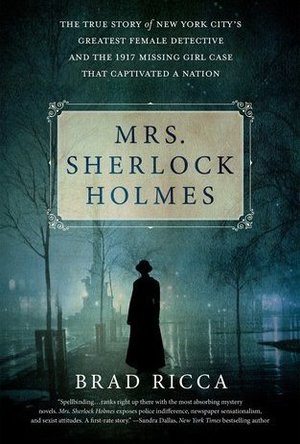
Mrs. Sherlock Holmes
Book
This is the shocking and amazing true story of the first female U.S. District Attorney and traveling...
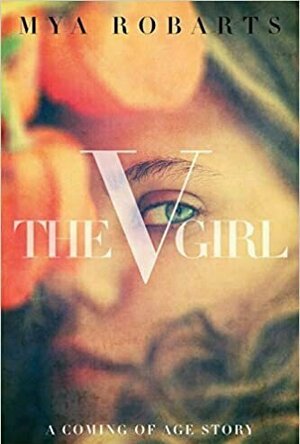
The V Girl: A Coming Of Age Story
Book
Romance set in a dystopian future In post-apocalyptic North America two emerging nations are at...
Young Adult Science Fiction Dystopian Romance
ClareR (6096 KP) rated The House of Fallen Sisters in Books
Feb 18, 2026 (Updated Feb 18, 2026)
The House of Fallen Sisters is a fast paced historical mystery - and a firm 10/10 from me!
I’ve loved all of Louise Hare’s books, and she’s fast becoming an insta-read author for me. Every book has been distinctly different from her others. Books have been set in: 1950’s London, 1930’s London and Harlem, and now this book is set in the brothels of 1760’s London (London seems to be a key place in all of her books so far - and that’s OK with me!).
In trying to escape her inevitable life as a prostitute in a Covent Garden brothel, Sukey finds a young black man in a side street, almost beaten to death. Whilst trying to save him, she’s captured and returned to the brothel. There’s a lot going on in the underbelly (and brothels) of London: slavery, double dealing, and cheating those who think they’re a friend.
I really enjoyed this - I got a real sense of the hustle and bustle of London. The danger, the community, friendships, hardships and the rules of the game Sukey and her Fallen Sisters must adhere to. They’re all fabulous characters - even the more untrustworthy people!
I can’t wait to see where Louise Hare takes us next!
I’ve loved all of Louise Hare’s books, and she’s fast becoming an insta-read author for me. Every book has been distinctly different from her others. Books have been set in: 1950’s London, 1930’s London and Harlem, and now this book is set in the brothels of 1760’s London (London seems to be a key place in all of her books so far - and that’s OK with me!).
In trying to escape her inevitable life as a prostitute in a Covent Garden brothel, Sukey finds a young black man in a side street, almost beaten to death. Whilst trying to save him, she’s captured and returned to the brothel. There’s a lot going on in the underbelly (and brothels) of London: slavery, double dealing, and cheating those who think they’re a friend.
I really enjoyed this - I got a real sense of the hustle and bustle of London. The danger, the community, friendships, hardships and the rules of the game Sukey and her Fallen Sisters must adhere to. They’re all fabulous characters - even the more untrustworthy people!
I can’t wait to see where Louise Hare takes us next!
ClareR (6096 KP) rated Caledonian Road in Books
Sep 16, 2024
I loved Mayflies, so I was really looking forward to Caledonian Road - and I wasn’t disappointed. There are a variety of characters, from the extremely well-off to those living in council flats and struggling to get by. This is a “State of the Nation” story, and it lays out just what that state is. From the Russian oligarchs and landed gentry, to slavery, inequality and crime. People have far too many secrets, until, that is, the media get hold of them.
Caledonian Road shows the repercussions of Covid and Brexit (none of it positive), and how those with money think they can get away with whatever they want to.
There are characters that you can really get your teeth in to, many of them rather unpleasant. The main character, a university academic called Campbell Flynn, is struggling with his life. He grew up working class in Glasgow, and has married in to minor aristocracy. He likes to think that he hasn’t lost touch with his origins - but has he?
There’s a lot going on in this novel - too much to write here - and you’re really better off reading it for yourself! It’s a chunk of a book, but it sped by. I loved it.
Caledonian Road shows the repercussions of Covid and Brexit (none of it positive), and how those with money think they can get away with whatever they want to.
There are characters that you can really get your teeth in to, many of them rather unpleasant. The main character, a university academic called Campbell Flynn, is struggling with his life. He grew up working class in Glasgow, and has married in to minor aristocracy. He likes to think that he hasn’t lost touch with his origins - but has he?
There’s a lot going on in this novel - too much to write here - and you’re really better off reading it for yourself! It’s a chunk of a book, but it sped by. I loved it.
Well, I didn’t know how much I needed to read Korean literature until I read The Trunk!
Inji works for a secret branch of a well-known matchmaking agency. Men who would like a wife without the long term commitment, hire a Field Wife. She fulfils their every wish, be it domestic or sexual. Inji’s current husband is a repeat contract. He’s not very good at being a husband, and reinforces Inji’s opinions on marriage: unnecessary and unfulfilling. And then there’s the possibility of domestic violence and exploitation.
To be fair, this doesn’t paint a great picture of marriage in (this case) Korea. Inji doesn’t even refer to her husband by name. He’s just “husband”, which makes him almost incidental to the story.
There’s a lot going on in this novel: family dynamics, exploitation, modern slavery, death (by suicide?), prostitution.
And what is the trunk in the title? I personally think it’s Inji’s personal baggage: the emotions, feelings and responsibilities that she carries around with her all the time. This trunk goes with her between field husband, her family and her flat. She’s never without it.
Is it the thriller that it’s sold as? I don’t think so, but it is a very interesting glance into life in Korea, and I really enjoyed it.
Inji works for a secret branch of a well-known matchmaking agency. Men who would like a wife without the long term commitment, hire a Field Wife. She fulfils their every wish, be it domestic or sexual. Inji’s current husband is a repeat contract. He’s not very good at being a husband, and reinforces Inji’s opinions on marriage: unnecessary and unfulfilling. And then there’s the possibility of domestic violence and exploitation.
To be fair, this doesn’t paint a great picture of marriage in (this case) Korea. Inji doesn’t even refer to her husband by name. He’s just “husband”, which makes him almost incidental to the story.
There’s a lot going on in this novel: family dynamics, exploitation, modern slavery, death (by suicide?), prostitution.
And what is the trunk in the title? I personally think it’s Inji’s personal baggage: the emotions, feelings and responsibilities that she carries around with her all the time. This trunk goes with her between field husband, her family and her flat. She’s never without it.
Is it the thriller that it’s sold as? I don’t think so, but it is a very interesting glance into life in Korea, and I really enjoyed it.
Rachel King (13 KP) rated The Claiming of Sleeping Beauty (Sleeping Beauty, #1) in Books
Feb 11, 2019
Anne Rice wrote a trilogy of books under the pen name A. N. Roquelaure, based on the fairy tale Sleeping Beauty. These books were titled The Claiming of Sleeping Beauty, Beauty's Punishment (Sleeping Beauty), and Beauty's Release: The Conclusion of the Classic Erotic Trilogy of Sleeping Beauty. Yep, you read it right - erotica. The set is the only thing I have ever read by Anne Rice, and the only erotica books I have ever read. I have told maybe one or two other people that I have read the series, because it just does not match up with my "good girl" persona, and it resulted in the shocked expression I was expecting. Why would I read such an abomination? One part boredom, one part fairy tale superfan, and three parts secret naughty indulgence/curiousity (one for each book) - I found the books at a slow point while working at a bookstore, and sneakily read them at the customer service desk when I had nothing else to do.
In the first book, Beauty is awakened from her hundred-year sleep with a deflowering by the Prince. He takes her to his kingdom, where she is trained as a sexual slave and plaything, but she fails to be obedient, so is sent to brutal slavery in the neighboring village. In the second book, she is sold at auction and a power struggle ensues as she refuses to be completely broken by her various punishments. Actual plotline wanes in this one until towards the end some of the psychological aspects of sexual slavery are explored before Beauty is kidnapped for a Sultan. In the third book, the various characters all reach closure in varying forms as the sexual aspects of the plot take on a more religious and philosophical tone, as opposed to the crudity of the European castle and village. By the end of the series, it felt more like I was reading a study of a lifestyle for the education and not so much for the indulgence.
The sexual scenes are extremely explicit and graphic with the theme of sado-masochism replete throughout the text, but amazingly, there is still a plotline and decent character development. The first book was my favorite of the three, simply because that is the only book of the three that actually uses the fairy tale in its plotline, and by the third book much of the sex seemed vaguely repetitive and did not affect me as intensely as it did in the beginning. I would even dare to recommend it to those who are of the appropriate age.
I likely have A. N. Roquelaure's influence to thank for my unquestioning devotion to the Kushiel's Legacy series by Jacqueline Carey, now that I think about it...
In the first book, Beauty is awakened from her hundred-year sleep with a deflowering by the Prince. He takes her to his kingdom, where she is trained as a sexual slave and plaything, but she fails to be obedient, so is sent to brutal slavery in the neighboring village. In the second book, she is sold at auction and a power struggle ensues as she refuses to be completely broken by her various punishments. Actual plotline wanes in this one until towards the end some of the psychological aspects of sexual slavery are explored before Beauty is kidnapped for a Sultan. In the third book, the various characters all reach closure in varying forms as the sexual aspects of the plot take on a more religious and philosophical tone, as opposed to the crudity of the European castle and village. By the end of the series, it felt more like I was reading a study of a lifestyle for the education and not so much for the indulgence.
The sexual scenes are extremely explicit and graphic with the theme of sado-masochism replete throughout the text, but amazingly, there is still a plotline and decent character development. The first book was my favorite of the three, simply because that is the only book of the three that actually uses the fairy tale in its plotline, and by the third book much of the sex seemed vaguely repetitive and did not affect me as intensely as it did in the beginning. I would even dare to recommend it to those who are of the appropriate age.
I likely have A. N. Roquelaure's influence to thank for my unquestioning devotion to the Kushiel's Legacy series by Jacqueline Carey, now that I think about it...
Suswatibasu (1703 KP) rated The Ethics of Ambiguity in Books
Aug 30, 2017
Complex themes, slightly obvious
Simone De Beauvoir is one of the foremost feminist philiosophers there are. However, unlike in The Second Sex, The Ethics of Ambiguity explores the nature of freedom and basically deconstructs arguments made by pioneering philosophers Marx and Kant. She poses the question how can humans be both subject and object yet still be free? She says if humans are born free why are they also treated like objects to control? And there lies the ambiguity.
As free, we have the ability to take note of ourselves and choose what to do. As factic, we are constrained by physical limits, social barriers and the expectations and political power of others. She has quite a Hobbesian approach saying human beings are responsible for their own actions and therefore have to work at creating concrete ideals rather than following an abstract notion of freedom.
She also criticises approaches that require grasping for freedom at the expense of others - adding that inadvertently reduces gaining freedom down to another form of slavery ie. Communism, Capitalism and Democracies.
She concludes that the only way you can will yourself free is to will others free in the process.
While the sentiment is there, her writing style was very repetitive in this book, and at times a little tangential. Not her best work, but still very relevant for current times.
As free, we have the ability to take note of ourselves and choose what to do. As factic, we are constrained by physical limits, social barriers and the expectations and political power of others. She has quite a Hobbesian approach saying human beings are responsible for their own actions and therefore have to work at creating concrete ideals rather than following an abstract notion of freedom.
She also criticises approaches that require grasping for freedom at the expense of others - adding that inadvertently reduces gaining freedom down to another form of slavery ie. Communism, Capitalism and Democracies.
She concludes that the only way you can will yourself free is to will others free in the process.
While the sentiment is there, her writing style was very repetitive in this book, and at times a little tangential. Not her best work, but still very relevant for current times.
David McK (3721 KP) rated The Horse and His Boy (Chronicles of Narnia, #5) in Books
Jan 28, 2019
Firstly, is this the third Narnia book, or is it the fifth?
The answer to that is whether you go by chronological setting (in which case it's the third), or by publication date (it's the fifth).
This is also a story that I didn't remember reading as a child; however, when I was recently re-reading it I was finding plot elements to be a little-bit-more-familiar than I was otherwise expecting: perhaps I did, and had just forgotten.
Unlike [b: The Lion, The Witch and The Wardrobe|100915|The Lion, the Witch, and the Wardrobe (Chronicles of Narnia, #1)|C.S. Lewis|https://d.gr-assets.com/books/1353029077s/100915.jpg|4790821], this does not follow the Pevensie children, but rather the journey of a young boy named Shasta who discovers he was adopted and is running away to Narnia when his adoptive father is about to sell him into slavery; running away alongside/with the help of the talking horse Bree. Along the way they fall in with a girl named Aravis and her talking horse Hwin, who are also making the same escape.
While I've heard arguments recently that, in this book, CS Lewis is displaying his own racist xenophobia ('fair and white ... accursed but beautiful Barbarians'), personally I think that is reading too much into what is simply intended to be a children's Arabian Nights esque fairytale
The answer to that is whether you go by chronological setting (in which case it's the third), or by publication date (it's the fifth).
This is also a story that I didn't remember reading as a child; however, when I was recently re-reading it I was finding plot elements to be a little-bit-more-familiar than I was otherwise expecting: perhaps I did, and had just forgotten.
Unlike [b: The Lion, The Witch and The Wardrobe|100915|The Lion, the Witch, and the Wardrobe (Chronicles of Narnia, #1)|C.S. Lewis|https://d.gr-assets.com/books/1353029077s/100915.jpg|4790821], this does not follow the Pevensie children, but rather the journey of a young boy named Shasta who discovers he was adopted and is running away to Narnia when his adoptive father is about to sell him into slavery; running away alongside/with the help of the talking horse Bree. Along the way they fall in with a girl named Aravis and her talking horse Hwin, who are also making the same escape.
While I've heard arguments recently that, in this book, CS Lewis is displaying his own racist xenophobia ('fair and white ... accursed but beautiful Barbarians'), personally I think that is reading too much into what is simply intended to be a children's Arabian Nights esque fairytale
